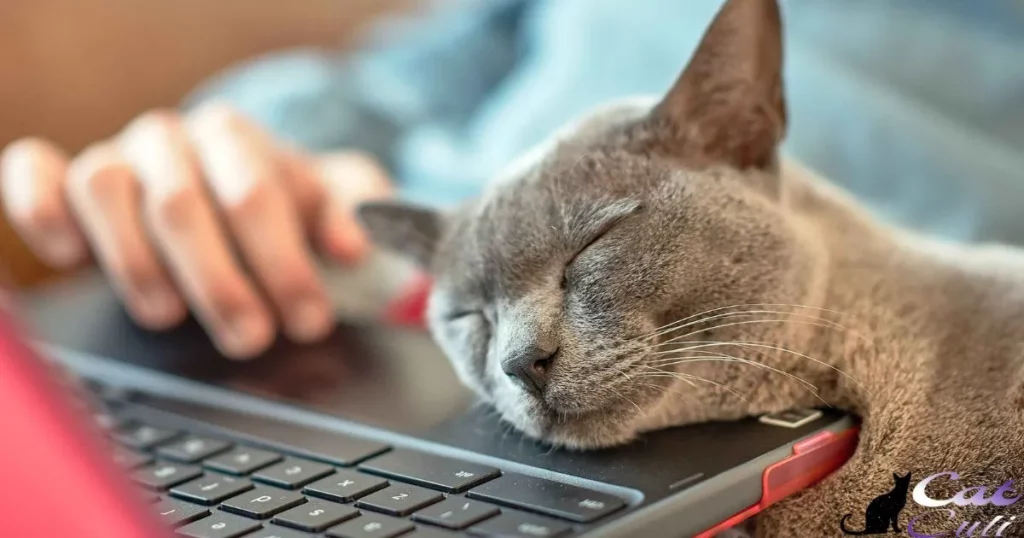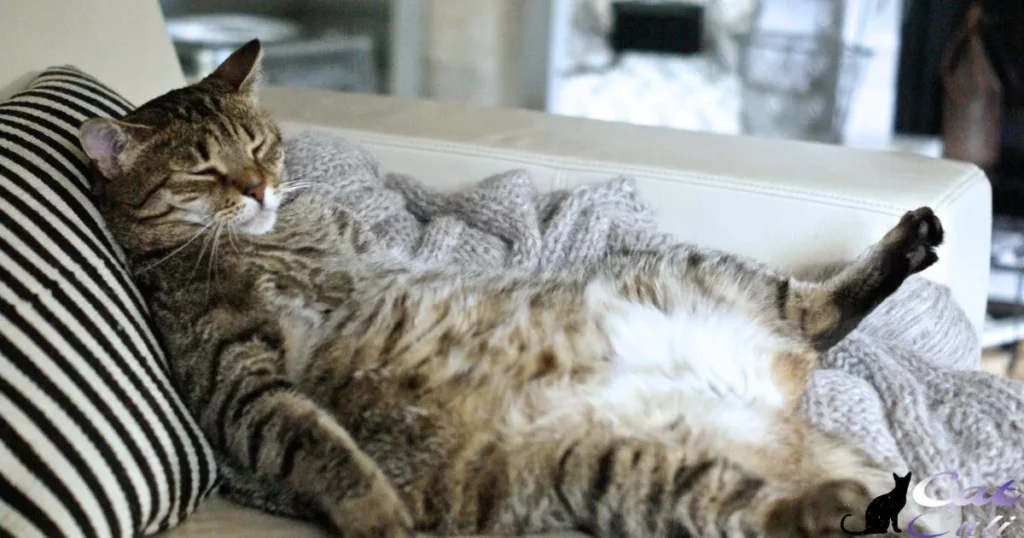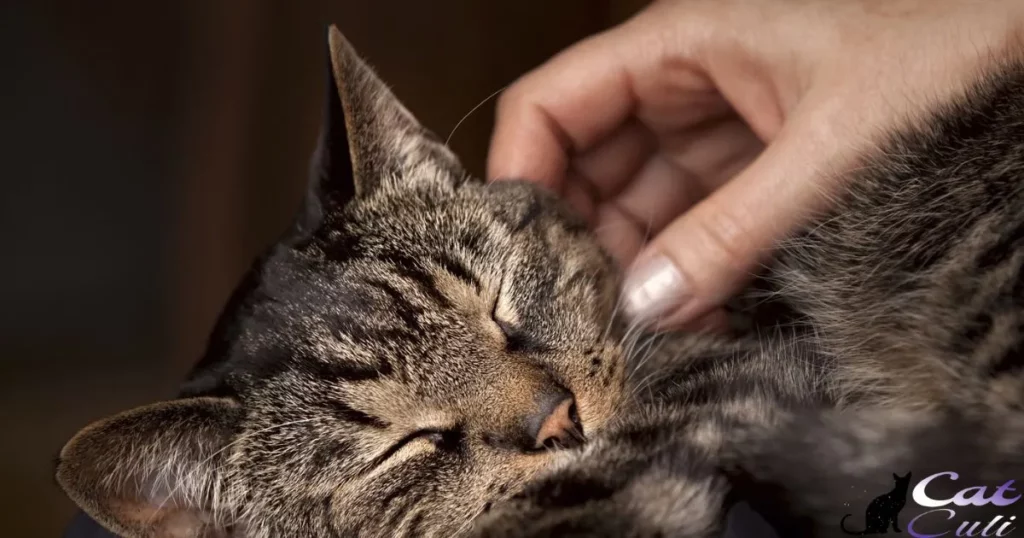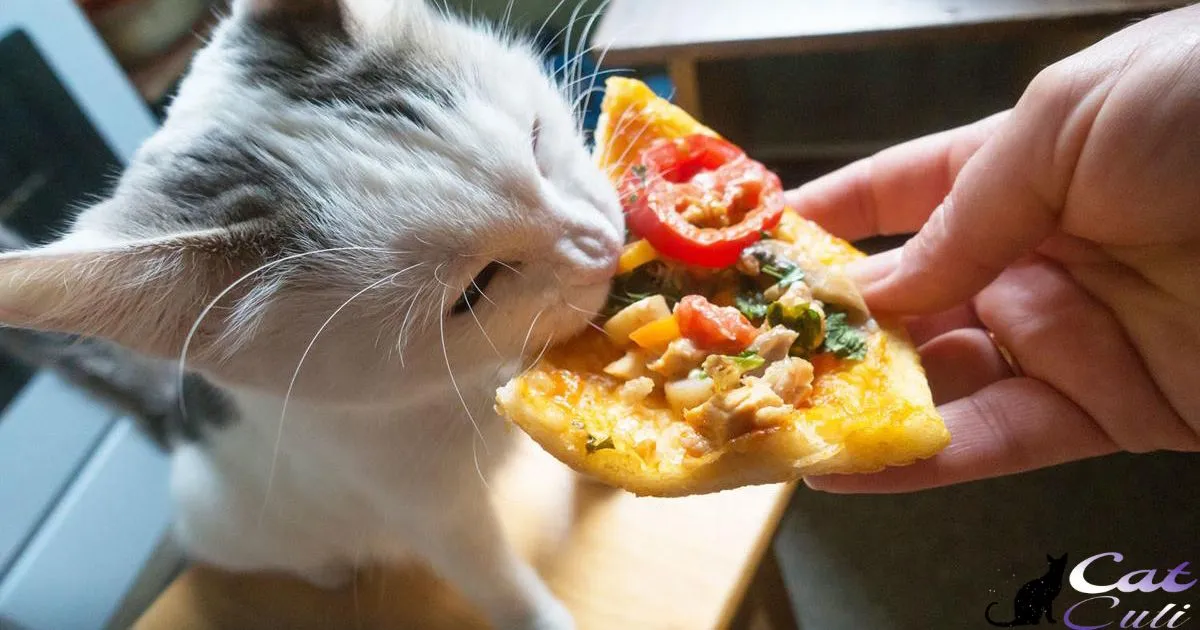If your cat eats spicy food, observe for signs of distress like excessive meowing or vomiting. Offer fresh water to help dilute the spice. Monitor their behaviour closely and consult your vet if you notice any unusual symptoms. Avoid giving spicy food to your cat to prevent future issues.
Discovering that your feline friend has nibbled on something spicy can be alarming. What To Do If My Cat Ate Spicy Food is a crucial question with straightforward steps to ensure your cat’s well-being. From quick observations to action steps, understanding these measures can be a game-changer in handling this unexpected situation.
If your cat accidentally eats spicy food, staying with us for essential guidance on immediate steps could make a big difference in your cat’s comfort and health. Understanding what to do can help ease the situation and ensure your feline friend gets the care they need.
What is Spicy Food?
Spicy food contains compounds like capsaicin that create a hot or burning sensation in your mouth. It often includes ingredients like chilli peppers, black pepper, or spices that add heat and flavour to dishes. People worldwide enjoy spicy food for its taste, but its level of heat can vary, from mild to extremely hot, depending on the ingredients used.
These foods trigger receptors in your mouth, sending signals to your brain that interpret the sensation as heat or spice. Different cultures have their versions of spicy cuisine, adding diverse ingredients and techniques to create unique flavours and levels of spiciness. Many enjoy spicy food for its kick and the range of flavours it adds to meals.
Can cats taste spicy food?
Cats can taste flavours like bitter, sour, salty, and to some extent, sweet. However, they lack taste receptors for capsaicin, the compound that makes food spicy. This means cats aren’t sensitive to the heat or spiciness in food like humans are.
Their taste buds don’t react to spicy flavours, so they might not experience the same sensation of heat or discomfort when they eat spicy food that humans do.Their inability to taste spiciness doesn’t mean spicy food is safe for cats.
Some spicy ingredients like onions or garlic can be harmful to them. While cats might not mind the heat from spices, it’s crucial to avoid feeding them spicy foods to prevent any potential digestive issues or other health problems.
At-Home Treatment for Mild Ingestion
For mild cases of ingestion at home, simple remedies like offering water to dilute any irritants can be helpful. You can also monitor your pet’s behaviour closely for any signs of discomfort or unusual reactions. If your pet seems fine but you’re still concerned, contacting your vet for further advice is a good step to take.
In cases of mild ingestion, staying calm and taking immediate but simple actions like offering water and keeping an eye on your pet’s behaviour can often resolve the issue without much trouble. It’s always wise to seek professional advice if you’re unsure or if your pet shows any signs of distress.
Preventing Your Cat from Eating Spicy Foods
To prevent your cat from eating spicy foods, store them securely in cabinets or high places inaccessible to your pet. Keep an eye on your meals to ensure your cat doesn’t sneak a taste. Educate family members and visitors about the dangers of feeding spicy food to cats to avoid accidental ingestion.
Furthermore, opt for cat-friendly treats and meals without spicy ingredients. Always check labels before sharing food with your pet and stick to specially formulated cat food to ensure their well-being. Taking proactive measures helps safeguard your cat’s health by preventing them from consuming spicy foods.
Alternative Human Foods Cats Can Eat
- Cooked eggs: Cats can benefit from the protein in eggs, but they should be cooked thoroughly.
- Plain cooked chicken or turkey: A lean protein source that can be offered to cats in moderation.
- Plain, cooked fish (without bones): Fish like salmon or tuna can be a good occasional treat for cats.
- Plain, unsalted steamed vegetables: Some cats may enjoy small amounts of vegetables like carrots or green beans.
- Plain rice or pasta: These can be given to cats occasionally, but not as a regular part of their diet.
- Small amounts of cheese: Cats may like cheese, but it should be given sparingly due to lactose intolerance in some cats.
- Small portions of plain yoghurt: Some cats tolerate yoghurt well and it can provide probiotics, but moderation is key.
Keeping Your Cat Happy and Healthy?

To keep your cat happy and healthy, prioritize regular vet check-ups, ensuring vaccinations and health concerns are addressed promptly. Provide a balanced diet with high-quality cat food and fresh water, tailored to their age and health needs. Engage your cat in playtime and interactive activities daily to stimulate their mind and keep them physically active.
Create a safe and comfortable environment by offering cozy resting spots and scratching posts. Regular grooming sessions to keep their fur clean and nails trimmed are essential. By incorporating these practices into your routine, you’ll ensure your furry companion enjoys a vibrant and content life.
When to Take Your Cat to the Vet After Ingesting Spicy Food
If your cat ate spicy food and shows severe symptoms like excessive vomiting, diarrhoea, or signs of extreme discomfort, take them to the vet immediately. Persistent symptoms such as lethargy, refusal to eat or drink, or evident distress also warrant a prompt visit to the veterinarian.
Observing prolonged distress or unusual behaviour in your cat signals the need for professional evaluation to ensure their well-being.Delaying a vet visit after your cat ingests spicy food can exacerbate their discomfort or lead to potential health complications.
Prioritize a swift trip to the vet if you notice ongoing or worsening symptoms, as this ensures timely care and appropriate treatment for your cat’s condition. Taking proactive steps by seeking veterinary assistance promptly can significantly aid in your cat’s recovery and prevent further health issues.
Why Spicy Foods Are Harmful for Cats
Spicy foods pose risks for cats because their digestive systems can’t handle certain compounds like capsaicin found in spices. These ingredients can cause stomach upset, diarrhoea, or vomiting in cats. Spicy foods might also lead to inflammation or irritation in their digestive tract, making it uncomfortable for them.
Spicy foods can disrupt a cat’s natural balance, impacting their overall health. Cats lack specific enzymes to break down spicy elements, making it harder for them to digest these foods properly. It’s essential to keep spicy foods away from cats to avoid potential health issues and ensure their well-being.
Irritation And Discomfort
Certain foods, especially spicy ones, can cause irritation and discomfort in the digestive tract of cats, leading to discomfort and potential inflammation.
Stomach And Digestive Problems
Spicy foods can trigger stomach upset, diarrhoea, or vomiting in cats due to their inability to process certain compounds found in these foods.
Dehydration
Digestive issues caused by spicy foods might lead to dehydration in cats due to increased fluid loss from vomiting or diarrhoea.
Liver And Kidney Damage
Prolonged exposure or ingestion of certain spices can potentially harm a cat’s liver and kidneys, impacting their overall health and well-being.
Signs Your Cat May Have Eaten Something Spicy
Your cat might show signs like excessive meowing, pawing at their mouth, or drooling if they’ve eaten something spicy. Keep an eye out for restlessness or pacing, as these can also indicate discomfort. If you notice these signs, it’s essential to act promptly and keep an eye on your furry friend’s behaviour.
Watch for changes in their appetite or any signs of discomfort in the litter box, such as diarrhoea or straining. Checking for redness or irritation around their mouth can also indicate spice ingestion. Being attentive to these signs helps catch any issues early and ensures your cat gets the care they need.
What To Do If Your Cat Ate Something Spicy

If your cat consumed something spicy, act swiftly. First, observe for distress signs like excessive meowing or vomiting. Offer water to dilute the spice and monitor closely for any unusual behaviour. Consulting your vet promptly ensures proper care and prevents potential complications.
Avoid giving spicy foods to your cat to prevent future mishaps.When a cat ingests spicy items, taking immediate action matters. Start by watching for distress signals such as increased meowing or vomiting. Providing water helps dilute the spice, and vigilant monitoring for unusual behaviour is crucial.
Quick vet consultation ensures proper care, averting potential complications, while refraining from feeding spicy foods prevents similar incidents.
Treatment Of Spicy Food Ingestion In Cats
| Treatment of Spicy Food Ingestion in Cats |
| Step | Description |
| Observation | Monitor cats for signs: excessive meowing, vomiting, or unusual behaviour. |
| Dilution | Offer fresh water to help dilute the spiciness in the cat’s digestive tract. |
| Vet Consultation | Seek prompt advice from a veterinarian if symptoms persist. |
| Preventive Measures | Avoid feeding spicy foods to cats to prevent future ingestion problems. |
The Capsaicin In Spicy Food Isn’t Good For Your Cat
Spicy food contains capsaicin, which can harm your cat. Cats can’t handle capsaicin well, causing stomach upset or irritation. Keep spicy food away from your cat to avoid any potential health issues. It’s essential to prioritize their well-being and stick to cat-friendly foods.
Capsaicin found in spicy food poses risks to your cat’s health. Their sensitive digestive systems struggle with this compound, leading to discomfort. Prevent any chances of harm by ensuring your cat doesn’t consume spicy foods, maintaining their health and happiness.
Spicy Food Might Have Other Dangerous Ingredients
- Spicy foods often contain ingredients beyond capsaicin that can be harmful to cats.
- Onions, garlic, and certain herbs/spices in spicy dishes are toxic to felines.
- These ingredients can cause digestive issues, anaemia, or even organ damage in cats.
- Avoid feeding spicy foods to your cat to prevent exposure to these dangerous components.
- Stick to cat-safe foods to ensure your pet’s well-being and health.
Why Does Your Cat Beg For Spicy Food?
Cats might beg for spicy food due to their curious nature and attraction to new scents. They might be drawn to the strong aroma or the excitement of something different. They mimic their owner’s behaviour, wanting to share what they see as tasty. Spicy food isn’t ideal for cats and can upset their stomachs, so it’s important to redirect them to cat-friendly treats to keep them healthy.
While cats begging for spicy food can seem cute, it’s crucial to understand their motivations. Cats might beg out of curiosity or a desire to imitate their humans, but spicy food isn’t suitable for their sensitive stomachs. Redirecting their interest to safe and cat-friendly treats ensures they stay healthy and happy.
Can Cats Die From Spicy Food

Spicy food can be harmful to cats and, in extreme cases, could lead to severe health issues or even death. Cats have sensitive digestive systems, and the spices can cause irritation, vomiting, diarrhoea, or abdominal pain. It’s crucial to keep spicy foods away from cats to prevent any potential harm or distress to their well-being.
If a cat consumes spicy food and shows signs of distress like excessive drooling, restlessness, or difficulty breathing, immediate veterinary care is necessary. Rapid intervention can help mitigate the risks and prevent any severe complications that could arise from the ingestion of spicy substances.
My Cat Ate Spicy Chicken
Discovering that your cat ingested spicy chicken can be concerning. This situation requires immediate action. First, observe your cat for any signs of distress like excessive meowing or vomiting. Then, provide fresh water to help dilute the spice in their system. If symptoms persist or worsen, contact your vet promptly for further guidance and care.
Feeding cats spicy chicken isn’t advisable as it can upset their sensitive stomachs. Cat food good for chickens ensures a balanced diet for your feline without causing digestive discomfort. Avoiding spicy foods keeps your cat healthy and prevents potential issues.
Can Cats Eat Spicy Tuna
Cats should avoid spicy tuna due to potential digestive issues. Spices in tuna might upset their stomachs, leading to discomfort or vomiting. It’s safer to offer plain, cooked tuna without spices, ensuring your cat enjoys a treat without any unwanted consequences.
When considering feeding your cat tuna, opt for plain varieties. Spicy tuna can cause digestive problems, making it better to err on the side of caution. By choosing non-spicy options, you prioritize your cat’s digestive health and well-being.
Can Dogs Eat Spicy Food
Dogs shouldn’t eat spicy food because it can upset their stomachs and cause discomfort. Spices like chilli powder or hot peppers contain compounds that can irritate a dog’s digestive system. It’s essential to stick to their regular diet to prevent any digestive issues or potential harm.
Feeding spicy food to dogs can lead to vomiting, diarrhoea, or even more severe conditions. It’s best to keep these foods away from their reach and provide them with meals that suit their digestive systems. Always consult a vet if your dog accidentally consumes spicy food to ensure their health isn’t at risk.
FAQ’s
What happens if a cat eats spicy food?
Cats may experience digestive upset like vomiting or diarrhoea due to spices irritating their system.
Is Chilli toxic to cats?
Yes, chilli can be toxic to cats due to capsaicin, causing digestive issues or discomfort.
Can cats sense spicy food?
Cats have taste receptors that detect spice, but they don’t feel the same burning sensation as humans.
Conclusion
In the end, knowing What To Do If Your Cat Ate Spicy Food can be a lifesaver. Remember, swift action is crucial to observe for any distress signs, offer water to dilute, and keep a watchful eye on their behaviour. Seeking vet advice ensures your cat’s health stays intact. Prevention is key.
Understanding the steps to take if your cat consumes spicy food empowers you to act promptly. Your attentiveness and quick response can make all the difference in ensuring your cat’s comfort and health. Stay informed and proactive to keep your furry companion safe from any spicy mishaps in the future.








